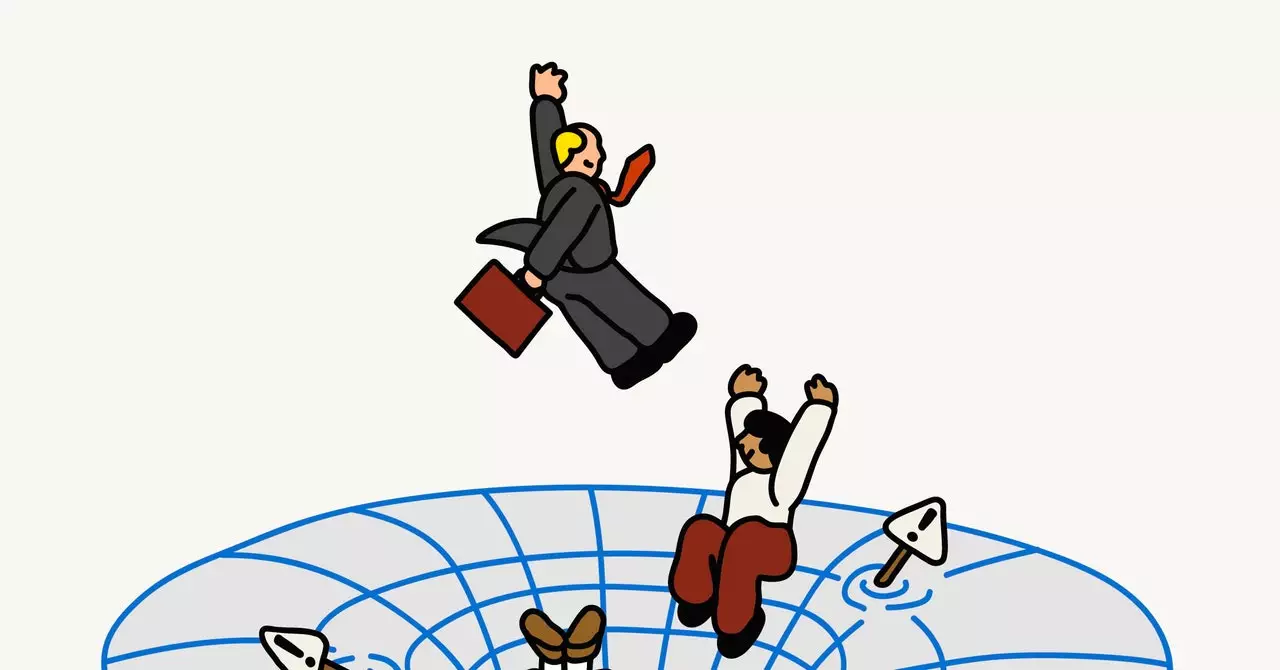As we advance into an uncertain future shaped by rapid technological development, one striking concern emerges: the increasing ability of artificial intelligence (AI) to generate creative works that blur the line between human and machine. While this capability can be hailed as a remarkable technological achievement, the reality of the situation is more complex. It turns out that what is often most notable about current generative AIs is not their prodigious creativity, but rather their talent for producing a large volume of mediocre content at an astonishing speed. This quick-fire production raises pertinent questions for various sectors, including education and creative industries, where distinguishing genuine human effort from AI-generated drivel has become increasingly difficult.
In the realm of higher education, for example, educators are grappling with the ramifications of this shift. The concern for many lies in assessing student work; with AI capable of creating seemingly substantive essays or reports, teachers find themselves caught in a maze, trying to discern which submissions indicate genuine understanding and growth. This dilemma is exacerbated by the increasing normalization of AI-generated content in academic circles, leading to a potential dilution of educational standards.
However, no field has experienced a seismic shift quite like search engine optimization (SEO). Often deemed as a necessary evil, SEO is the craft of enhancing a website’s visibility in search engines through various strategies and tactics. A prominent tactic involves generating extensive volumes of text that link back to a client’s site, effectively creating a maze of breadcrumbs for search engines to follow. This practice has morphed into what can only be described as search engine spam—an insidious growth that floods the modern web and diminishes the overall quality and utility of the information available.
As generative AIs become adept at crafting this type of low-quality text rapidly, the landscape becomes increasingly cluttered. Search engines respond to this overflow by developing AI-driven algorithms that aim to outsmart the spammers, promising users thoughtful human-like responses instead of directing them to the inane clutter of automated texts. This evolving dynamic fuels the rise of what the tech community has dubbed “large language model optimization” (LLMO)—a new strategy aimed at influencing search engine algorithms to favor certain websites over others. Consequently, the internet risks becoming a cacophony of auto-generated content predominantly aimed at appealing to algorithms rather than humans.
In this context, authentic human voices have become rare treasures in the sea of algorithm-driven chatter. In a bid to unearth legitimate perspectives, savvy users have appended “site:reddit.com” to their searches, hoping to wade through SEO struggles to find real human opinions. Unfortunately, even platforms like Reddit are not immune to the AI invasion, with automated bots infiltrating comment sections in attempts to masquerade as organic participants in discussions.
As we forecast into 2025, navigating the digital landscape will require nimbleness and a discerning eye. People may increasingly turn to older, more established corners of the internet that foster human interaction and oversight. Websites such as MetaFilter, which have been nurtured by human moderation, provide a welcome reprieve from the algorithmic noise, as they curate quality content and facilitate engaging discussions without the intrusion of AI-generated drivel. Similarly, platforms like Are.na offer spaces for users to connect through shared interests without the bombardment of ads and manipulative algorithms.
Moreover, even as microsocial dynamics are evolving, many individuals are tapping into the undercurrents of social media to engage in a more intimate way. Tons of video creators striving for connection rather than virality have begun to use platforms like TikTok and YouTube to foster genuine relationships with their audience, utilizing creative tools to clarify and amplify human connections.
While the digital future may remain treacherous due to the flood of AI-generated content, one truth is evident: humans will continue to crave and prioritize authentic communication. As the human voice continues to be drowned out by digital avatars, the tools and communities that prioritize and protect these connections will become invaluable. The challenge lies in rebuilding spaces across social media that can effectively serve the desire for human engagement amidst a cacophony of machine-generated voices. A critical component of our future will rely not solely on our ability to create life-like AI but on our commitment to fostering meaningful connections through genuine dialogue and interaction. In the end, the human spirit’s resilience and creativity may allow for the enduring emergence of authentic voices, even in a world overshadowed by artificiality.

